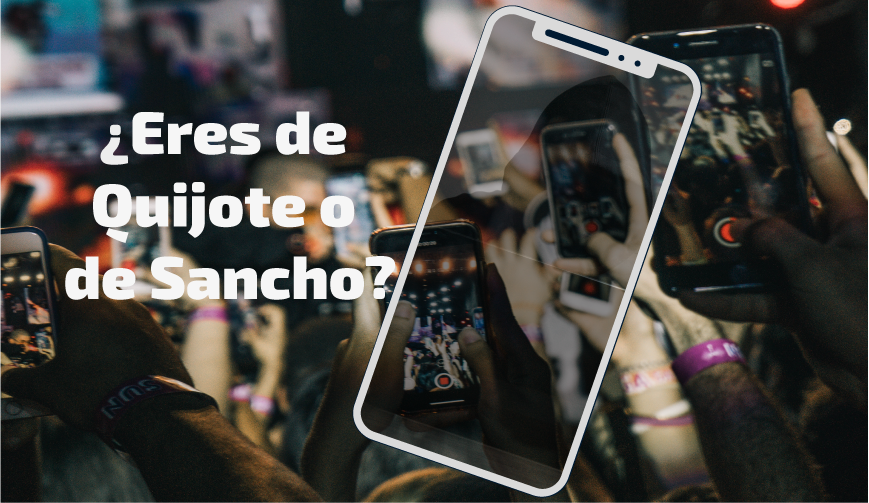
Quixote or Sancho
Many will undoubtedly agree that the Internet has been one of the great revolutions we have had and thanks to it, others have arisen, such as social networks that connect people all over the planet, where the way of relating to others has gone from the personal to the virtual, acting as meeting points where it is possible to access information, share impressions, consult files and resources available in real time.
The impact of social networks is exponential and the possibilities are limitless. It is amazing how many users are growing every day and are part of this new and dynamic world.
The network of networks has changed the way we communicate and confronts us with an immeasurable world of information, which we must know and adapt responsibly, as everything in excess has negative effects that could bring the excessive use of them and the side effects that could occur on society.
Today decentralized networks are beginning to emerge, which, in my opinion, both networks, centralized or decentralized, have the same effect on people or society, either in greater quantity for the centralized networks, since it is a phenomenon that has an advantage in its use, than the decentralized social networks that are being reborn in leaps and bounds with the emergence of new technologies or the combination of them.
It is no less true that with the evolution of the Internet, social networks have not ceased to develop. In the 1990s, the first so-called "Classmates" began to appear and it all started as a university project that sought to link or bring together virtually friends who had studied at the same school. In 2004, social networks had their greatest explosion due to the growing development of the Internet and the rise of new mobile devices with greater features and network connection.

Today, thanks to technology, we can communicate in a simple way and without much effort, regardless of borders and languages with a large number of people, of course this has led many to turn their eyes to these platforms and begin to study in depth the essence of this social phenomenon and take advantage of it in their favor, for its immediacy, its scope and its global accessibility.
Who hasn't felt like we have known people all our lives, after being accepted in a community and having interacted for more than a week? Well, yes, we feel accepted by everyone, members of a group in which we see ourselves recognized and whose bonds are strengthened, we even feel that we can interact with some confidence. Well, this phenomenon is what many people use to get the most out of social networks. Everyone will agree with me that the best example of democracy in the world, we could say, is the Internet, that is, everyone can use it with good and bad intentions and, therefore, everyone without exception can end up exposed to the dangers arising from its deliberate use.
While social networking platforms seem like a safe place, they are as dangerous as a lonely street, there is nothing truer than these words, and there are incalculable risks in using social networking platforms without common sense and good judgment, in this case I bring you a small sample of those possible risks:
Addiction to social networks;
- Contact with potentially dangerous strangers;
- Cyberbullying, grooming, sexting, sextortion (extortion, harassment, sexual blackmail through the Internet);
- May be verified through social networks and influence your future employment;
- Fake news that can distort your reality.
Every day, without realizing it, we are involved in a totally digital world, with a growing avalanche of dissimilar technologies connected to the network, in which hackers, cybercriminals and data traffickers try to impose their laws at the expense of the bad vices and bad practices that we, as users, carry out. Therefore, we must avoid suffering emotional, social or financial consequences caused by our own excessive use of social networks.
For this we must pay attention to:
- The privacy of your profiles;
- Avoid posting personal data or future plans;
- Be cautious when accepting requests or messages from unknown accounts or people.
- Avoid short URLs and QR codes, which are very likely to redirect you to dangerous areas;
- Avoid mixing your personal life with your work life.
Traditional media have been threatened in recent years by the emergence of these new platforms "social networks", which are increasingly consolidating as the main platform for the dissemination of messages, the relationship with citizens and the shaping of public opinion.
Do you consider yourself Quixote or Sancho of the social networks, those icons of madness and lucidity, of freedom and tradition, of passion and prudence?


0 Comments
Write a comment